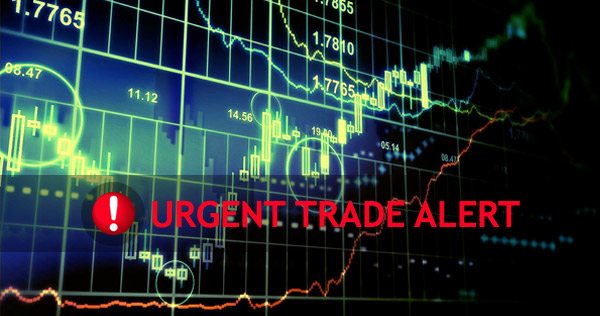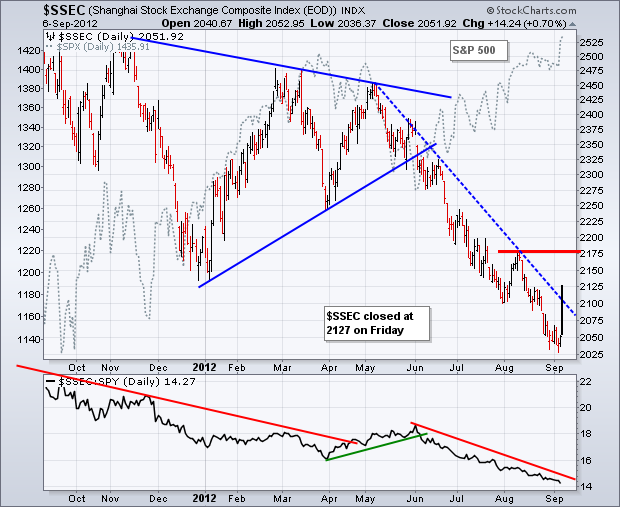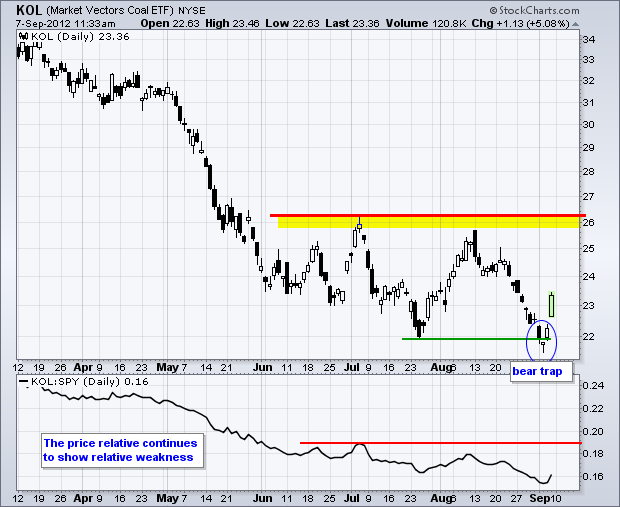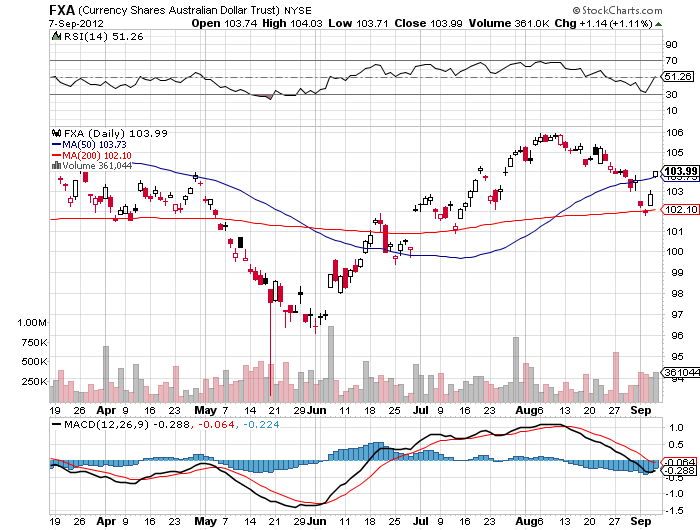As a potentially profitable opportunity presents itself, John will send you an alert with specific trade information as to what should be bought, when to buy it, and at what price. Read more
As a potentially profitable opportunity presents itself, John will send you an alert with specific trade information as to what should be bought, when to buy it, and at what price. Read more
As a potentially profitable opportunity presents itself, John will send you an alert with specific trade information as to what should be bought, when to buy it, and at what price. Read more
NOTE TO READERS: There is a short letter today because I spent the entire weekend writing Trade Alerts, which you will receive right at the Monday morning opening.
Last Friday, China announced a $150 billion reflationary public works budget designed to arrest the current free fall in the country?s GDP growth rate. The move came totally out of the blue and caught many China bears by surprise.
The National Development and Reform Commission has approved 60 new projects, led by railways, roads, harbors, and airports. While the plethora of plans is stretched over several years, it is clear the Politburo is trying to help the Communist party through its handover of power later this autumn. This has major implications for the global economy.
Cheng Li, research director at the Brookings Institution, said Beijing slammed on the brakes too hard last year to break the back of the property boom. Home prices are now off as much as 25%. So the Middle Kingdom appears to be back-peddling on these measures as fast as it can.
The immediate impact on financial markets was almost as great in the U.S. as it was in the Middle Kingdom, which saw Shanghai rocket 5% in a single day. It was off to the races for anything commodity related, including Caterpillar (CAT), copper (CU), Freeport McMoRan (FCX), US Steel (X), coal (KOL), and other materials sectors, all of which have been in a vicious bear market since 2011. It also calls into question the prudence of my short position in the Australian dollar, which has added two cents since the announcement.
We will have to wait a few more days to see if this move is real and sustainable, or just another short covering dead cat bounce. But this is what bottoms look like, and if it is, the ?BUY? opportunities in the entire space are huge. These are almost the last cheap stocks left.
Hmmm. Looks Like the Economy is Slowing Too Fast
Since nothing less than the fate of the free world depends on the judgment of Ben Bernanke these days, I thought I?d touch base with David Wessel, the Wall Street Journal economics editor, who has just published In Fed We Trust: Ben Bernanke?s War on the Great Panic.
I doubted David could tell me anything more about the former Princeton professor I didn?t already know. I couldn?t have been more wrong, as David gave me some fascinating insights into the inner soul of our much-vaunted Chairman of the Federal Reserve.
Bernanke was the smartest kid in rural Dillon, South Carolina, who, through a series of improbable accidents, and intervention by a local black civil rights leader, ended up at Harvard. He built his career on studying the Great Depression, then the closest thing to paleontology economics had to offer, a field focused so distantly on the past, that it was irrelevant. Bernanke took over the Fed when Greenspan was considered a rock star, inhaling his libertarian, free-market, Ayn Rand inspired philosophy in great giant gulps.
Within a year, the economy suddenly transported itself back to the Jurassic Age, and the landscape was overrun with T-Rex?s and Brontesauri. He tried to stop the panic 150 different ways, 125 of which were terrible ideas, the remaining 25 saving us from the Great Depression II. This is why unemployment is now only 9.1%, instead of 25%.
The Fed governor is naturally a very shy and withdrawn person, and would have been quite happy limiting his political career to the Princeton, NJ school board. To rebuild confidence, he took his campaign to the masses, attending town hall meetings and pressing the flesh like a campaigning first term congressman.
The price tag for Ben?s success has been large, with the Fed balance sheet exploding from $800 million to $2.7 trillion, solely on his signature. The true cost of the financial crisis won?t be known for a decade or more. The biggest risk is that we grow complacent, having pulled back from the brink, and letting desperately needed reforms of the financial system and the rebuilding of Fannie Mae and Freddie Mac slide. This is already starting to happen.
How Bernanke unwinds this bubble will define his legacy. Too soon, and we go back into a real depression. Too late, and hyperinflation hits. That?s when we find out who Ben Bernanke really is.
?Over the next several years, you will be shocked and surprised at the strength of the emerging Chinese consumer,? said Stephen Roach, the former Chairman of Morgan Stanley Asia.
A number of readers have asked me why I?m not trading now. Since I put out my calls to sell Treasury bonds in August (click here for ?The Great Treasury Bond Crash of 2010? ), and buy US stocks in September (click here for ?My Equity Scenario for the Rest of 2010? ), I have mostly been sitting on my hands. I usually try to catch three or four trend changes a year, which might generate 50-100 trades, and often come in frenzied bursts.
Since I am one of the greatest tightwads that ever walked the planet, I only like to buy positions when we are at the height of despair and despondency, and traders are raining off the Golden Gate Bridge. Similarly, I only like to sell when the markets are tripping on steroids and ecstasy, and are convinced that they can live forever.
Some 99% of the time, the markets are in the middle, and there is nothing to do but deep research, looking for the next trade. That is the purpose of this letter. Over the four decades that I have been trading, I have learned a number of tried and true rules which have saved my bacon countless times. I will share them with you.
1) Don?t over trade. This is the number one reason why individual investors lose money. Look at your trades of the past year and apply the 90/10 rule. Dump the least profitable 90% and watch your performance skyrocket. Then aim for that 10%. Over trading is a great early retirement plan for your broker, not you.
2) Always use stops. Risk control is the measure of the good hedge fund trader. If you lose all your capital on the lemons, you can?t play when the great trades set up. Consider cash as having an option value.
3) Don?t forget to sell. Date, don?t marry you positions. Remember, pigs get slaughtered. Always leave the last 10% of a move for the next guy.
4) You don?t have to be a genius to play this game. If that was required, Wall Street would have run out of players a long time ago. If you employ risk control and stops, then you can be wrong 40% of the time, and still make a living. That?s little better than a coin toss. It you are wrong only 30% of the time, you can make millions. If you are wrong a scant 20% of the time, you are heading a trading desk at Goldman Sachs. If you are wrong a scant 10% of the time, you are running a $20 billion hedge fund that the public only hears about when you pay $100 million for a pickled shark at a modern art auction. If someone says they are never wrong, as is often claimed on the Internet, run a mile, because it is impossible.
5) This is hard work. Trading attracts a lot of wide eyed, na?ve, but lazy people because it appears so easy from the outside. You buy a stock, watch it go up, and make money. How hard is that? The reality is that successful investing requires twice as much work as a normal job. The more research you put into a trade, the more comfortable you will become, and the more profitable it will be. That?s what this letter is for.
6) Don?t chase the market. If you do, it will turn back and bite you. Wait for it to come to you. If your miss the train, there will be another one along in hours, days, weeks, or months. Patience is a virtue.
7) When I put on a position, I calculate how much I am willing to lose to keep it. I then put a stop just below there. If I get triggered, I just walk away. Only enter a trade when the risk/reward is in your favor. You can start at 3:1. That means only risk a dollar to potentially make three.
8) Don?t confuse a bull market with brilliance. I am not smart, just old as dirt.
9) Tape this quote from the great economist and early hedge fund trader of the thirties, John Maynard Keynes, to you computer monitor: "Markets can remain illogical longer than you can remain solvent." Hang around long enough, and you will see this proven time and again (ten year Treasuries at 2.4%?!).
10) Don?t believe the media. I know, I used to be one of them. Look for the hard data, the numbers, and you?ll see that often the talking heads, the paid industry apologists, and politicians don?t know what they are talking about (the Gulf oil spill will create a dead zone for decades?).
11) When you are running a long/short portfolio, 80% of your time is spent managing the shorts. If you don?t want to do the work, then cash beats a short any day of the week.
12) Sometimes the conventional wisdom is right.
13) Invest like a fundamentalist, execute like a technical analyst.
14) Use technical analysis only and you will buy every rally, sell every dip, and end up broke. That said, learn what an ?outside reversal? is, and who the hell is Leonardo Fibonacci.
15) The simpler a market approach, the better it works. Everyone talks about ?buy low and sell high?, but few actually do it. All black boxes eventually blow up, if they were ever there in the first place.
16) Markets are made up of people. Understand and anticipate how they think, and you will make a lot of money.
17) Understand what information is in the market and what isn?t and you will make more money.
18) Do the hard trade, the one that everyone tells you that you are ?Mad? to do. If you add a position and then throw up afterwards, then you know you?ve done the right thing. This is why people started calling me ?Mad? 40 years ago.
19) If you are trying to get out of a hole, the first thing to do is quit digging and throw away the shovel. A blank position sheet can be invigorating.
20) Making money in the market is an unnatural act. We humans are predators and hunters evolved to track game on the horizon of an African savanna. Modern humans are maybe 5 million years old, but civilization has been around for only 10,000 years. Our brains have not had time to make the adjustment. In the market, this means that if a stock has gone up, you believe it will continue. This is why market tops and bottoms see volume spikes. To make money, you have to go against these innate instincts. Some people are born with this ability, while others can only learn it through decades of training. I am in the latter group.
Great Hunter, Lousy Trader
As a potentially profitable opportunity presents itself, John will send you an alert with specific trade information as to what should be bought, when to buy it, and at what price. Read more
As a potentially profitable opportunity presents itself, John will send you an alert with specific trade information as to what should be bought, when to buy it, and at what price. Read more
As a potentially profitable opportunity presents itself, John will send you an alert with specific trade information as to what should be bought, when to buy it, and at what price. Read more
Legal Disclaimer
There is a very high degree of risk involved in trading. Past results are not indicative of future returns. MadHedgeFundTrader.com and all individuals affiliated with this site assume no responsibilities for your trading and investment results. The indicators, strategies, columns, articles and all other features are for educational purposes only and should not be construed as investment advice. Information for futures trading observations are obtained from sources believed to be reliable, but we do not warrant its completeness or accuracy, or warrant any results from the use of the information. Your use of the trading observations is entirely at your own risk and it is your sole responsibility to evaluate the accuracy, completeness and usefulness of the information. You must assess the risk of any trade with your broker and make your own independent decisions regarding any securities mentioned herein. Affiliates of MadHedgeFundTrader.com may have a position or effect transactions in the securities described herein (or options thereon) and/or otherwise employ trading strategies that may be consistent or inconsistent with the provided strategies.














